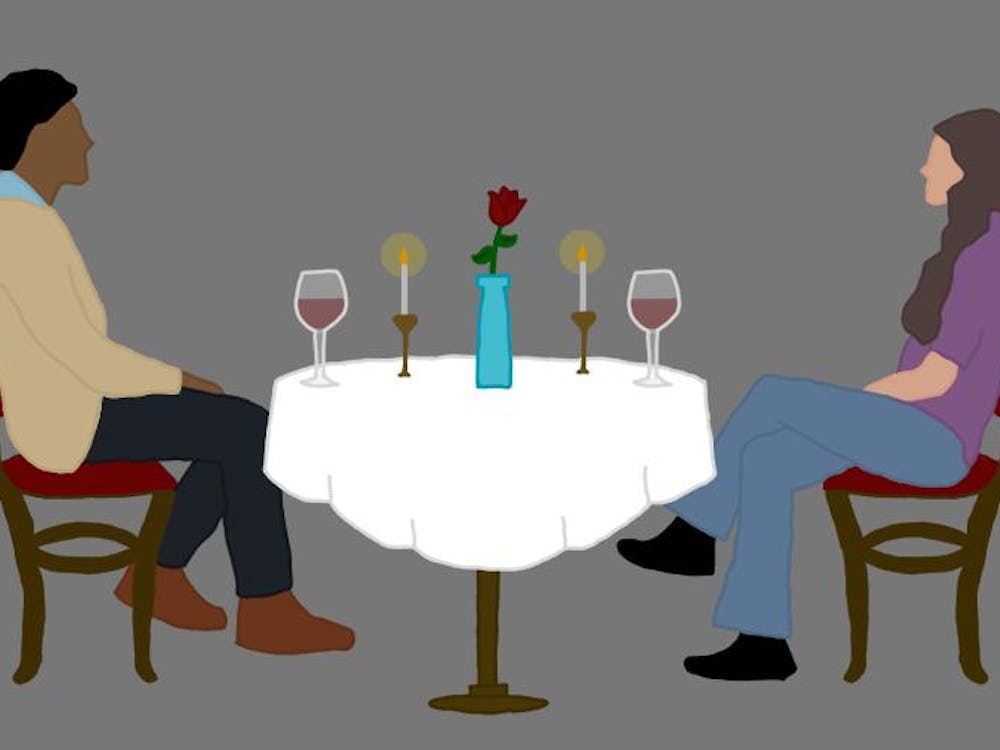Months after first opening this paperback full of powerful prose, I am still immersed in Joan Didion’s “Slouching Towards Bethlehem.” My younger self was ashamed to move through books slowly — I remember once pretending to have quickly finished reading all of Marlee Matlin’s books in second grade, as I viewed this as a way to garner recognition for having done something impressive. At the time, I am sure that reading at a given speed did merit praise, but this idea has become increasingly inapplicable in my young adult life. Although I try to devote time to finishing the books that I start, primarily to avoid the impending shame of an unfinished book sat tauntingly on my bedside table, there are myriad instances in which time must be afforded for a book’s completion. In the case of Joan Didion’s work, I have nurtured her words by making time to understand just how they materialize in my own perception of life.
Throughout my time spent reading the pieces within “Slouching Towards Bethlehem,” I have continuously made promises to myself to write that I fear will be hard to keep. I am hopefully convinced that the reinvigoration which reading good writing ignites will somehow propel me to do more writing myself — this intent gets lost in the presumably more pressing present. Writing, which is something that I love, very quickly becomes a source of stress, a reminder of the ideas that sit at my fingertips waiting for me to make something of them. In the first essay of Didion’s “Personals,” the second section in this collection, “On Keeping a Notebook” casualizes the act of personal writing and evicts the pressure of perfect expression.
When I was younger, I worked hard to keep a consistent diary in which my daily, weekly or, more often, monthly happenings were recorded in detail. As Didion agrees, this task quickly becomes mundane. In my college years, I find myself writing down random thoughts and small short stories or poems that don’t necessarily express meaning beyond the words on the page or the emotion which provoked me to write them.
As Didion claims, “The impulse to write things down is a peculiarly compulsive one, inexplicable to those who do not share it” — I share this sense of unexpectedness in how, what, and when I write. A short note in my iPhone about a bizarre interaction I had in a coffee shop that morning, Tony’s silly yet endearing attempt at wisdom in an episode of “The Sopranos” or the packing list I made for a family vacation two summers ago carry meaning beyond the moment in which they are created.
Didion dampens my fear that these few words or floating ideas will get lost in a written world that lacks context — she identifies the relevance of scattered thoughts, and tells herself “Remember what it was to be me: that is always the point.”
Although these erratic thoughts seem meaningful only in one dimension, they have the capacity to transport you to a physical place that you once were — a famous restaurant in a foreign country, the line for a corn dog at Disneyland or a mental space that you once occupied find their way back to you. As Didion asserts, “It all comes back,” and that is something to cherish.
Through these words we become reacquainted with the “people we used to be, whether we find them attractive company or not.” In her most potent valuing of seemingly arbitrary writing, Didion reminds me that “It all comes back … We forget all too soon the things we thought we could never forget, we forget the loves and the betrayals alike, forget what we whispered and what we screamed, forget who we were.” Writing for the present, and not because I feel as though I should write, will boast invaluable meaning in my future.
In the middle of December, my friend and I went out to dinner to celebrate the completion of our final exams. Shortly after we were seated, a woman who appeared to be in her mid to late seventies sat at the table next to us — she looked like a “Bonnie,” so for the purpose of un-obscuring her identity, I will refer to her as such. Bonnie was alone, and she carried with her what appeared to be an old wedding invitation. After receiving her drink and placing her order, she pulled out a pen and began to write on the back of the invitation. I was immediately taken by her — questions filled my head, and I wondered why she was alone, to whom she was writing, and why on an expired invitation? Bonnie finished her meal, took a few bites of her dessert and left the table smiling.
I think about this woman frequently and ponder my ambiguous admiration for her. After reading “On Keeping a Notebook,” I felt closer to Bonnie than I had before, and I realized that my questions about her perceived solitude were peripheral. I had neglected to consider that what Bonnie wrote was likely for herself, not meant to be sent off to or read by someone else. Like the encounters which Didion describes writing about in her notebook, the details of my encounter with Bonnie remind me of the power of silent connection. The reason that I write is to unlock a certain part of me which is otherwise latent — my written recollection of Bonnie exposed a curiosity, or longing, that compelled me to write about her.
I hope to someday find myself in the same position as Bonnie, indulging in a dinner alone, yet not at all lonely — with a pen and paper, thoughts and memories flood our present, making it impossible to be alone when with yourself. “It all comes back,” and for all of the things that I write and those that I do not, memories of who I once was and hoped to be will continue to inform who I become.







